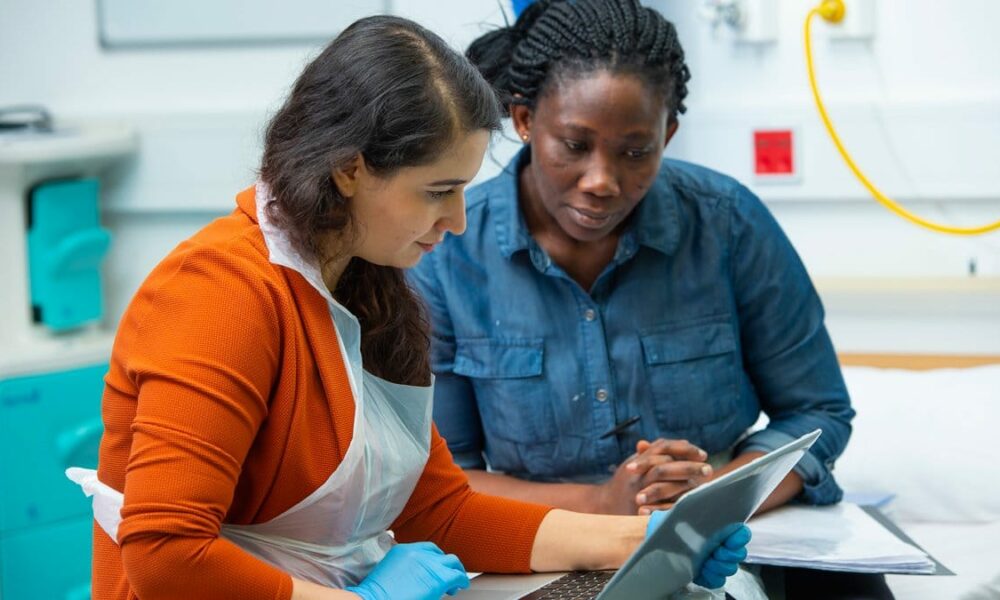
Research in the South East of England has been given a £1m boost to find new treatments for a range of serious illnesses including cancer, diabetes, digestive and liver diseases.
The National Institute for Health Research (NIHR) has awarded £1m to the University of Surrey and Royal Surrey NHS Foundation Trust to form a new NIHR Clinical Research Facility called the NIHR Royal Surrey Clinical Research Facility (CRF). The state-of-the-art facility will be based at the University’s Manor Park campus, adjacent to Royal Surrey Hospital.
Professor Paul Townsend, Pro-Vice-Chancellor and Executive Dean of the University’s Faculty of Health and Medical Sciences, said:
“The world of medicine is changing, and I firmly believe that the use of technology and data will be instrumental to improving health outcomes for people in the south-east and nationwide. The new Surrey Clinical Research Facility will be a hub for creative clinical thinking and a shining example of the University of Surrey’s ‘One Health, One Medicine’ approach.”
The facility will expand the shared medical research capabilities of the hospital and university, providing dedicated space, specialist equipment and skilled staff to support early-stage clinical research, including first-in-human clinical trials.
Research studies are expected to cover a broad range of specialities including cancer, diabetes, endocrinology, ophthalmology, genetic rare diseases, neurology, immunology, digestive and liver diseases, artificial intelligence (AI), robotic surgery and nuclear medicine. There will be a strong focus on supporting equity of access to patients including those from marginalised and underrepresented communities.
The NIHR Facility will be jointly led by Co-Directors Dr Hana Hassanin from the University of Surrey and Dr Stephen Barnett from the Royal Surrey NHS Foundation Trust and Professor Aftab Ala, who has a clinical role at the hospital and a research role at the university, as Deputy Director.
Dr Hana Hassanin said:
“Our combined research facilities and staff will complement each other and extend our multidisciplinary experimental medicine research portfolio with the objective of doubling our activity in research and innovation over the next five years.”
Royal Surrey already facilitates many clinical trials that focus on improving treatments and offer patients the opportunity to access medical treatments that are not widely available. Last year alone, more than 1,800 patients at the Trust were recruited to research studies and 45 new research studies were initiated. The hospital played a key role in Covid-19 research in the region, recruiting patients to urgent national and international research studies that developed new treatments and were acknowledged for their role in saving millions of lives globally.
Professor Aftab Ala, Director of Research at Royal Surrey, said:
“Research is intrinsic to providing the best patient care. Research-active hospitals are known to have better patient outcomes, even for those patients that aren’t involved in studies directly. The impact of research was something the pandemic placed a sharp focus – we saw hospital treatment for a previously unknown condition rapidly trialled, evaluated and directly translated into medical practice to hugely improve hospital care.
“We are delighted to be able to expand our research capacity and potential, in partnership with the University of Surrey, in a way that will significantly benefit patients at our own hospital and beyond.”
The University and Trust already work closely on a number of high-profile collaborative research projects. Most recently they jointly hosted the Surrey arm of the national Valneva Covid-19 vaccine trial and sponsored the UK Research and Innovation/NIHR supported COBHAM study developing and delivering targeted Covid-19 health interventions to Black, Asian and minority ethnic communities living in the UK.
-Ends-
Notes to Editors
NIHR is funded by the Department of Health and Social Care. Its work in low and middle-income countries is principally funded through UK Aid from the UK government.